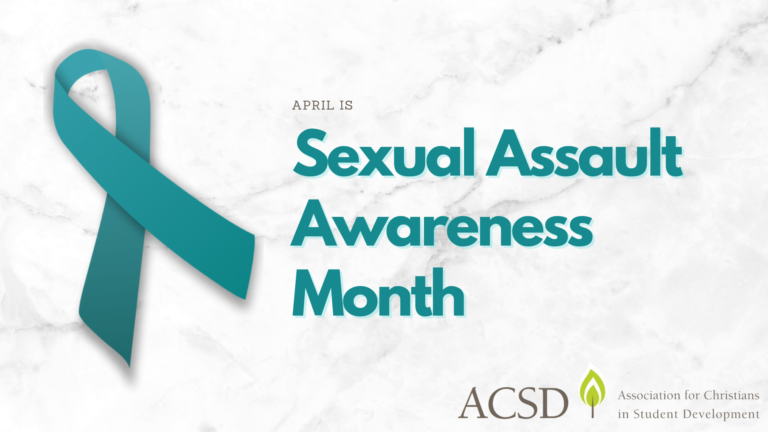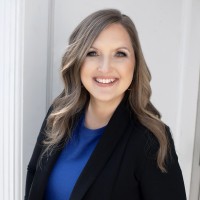Faith-based schools have many factors to consider when designing and implementing programming and training for sexual harassment prevention and Title IX on their campuses. It is easy to focus primarily on thinking about what behaviors or lifestyles a school does not want their training to appear to condone. While this perspective makes sense in respecting the school’s code of conduct and/or religious tenets, it may also miss the mark in providing a robust training that actually achieves the goal of preventing sexual harassment on your campus, and thereby fostering a healthier campus community.
Faith-based schools, like all institutions, can start by accepting that sexual harassment is present on their campuses. In spite of Title IX policies that demonstrate the university’s prohibition on these behaviors or Conduct policies that outline the school’s faith perspective on sexuality, both consensual and nonconsensual sexual experiences are happening among your students and employees.
How then do you walk the line between training and education that does not appear to condone behaviors outside of your religious tenets while simultaneously offering ample and appropriate education to protect your campus community members and prevent harassment? Here are some places to start:
- Identify your faith values
To this point, I am not merely talking about identifying your Code of Conduct parameters regarding certain behaviors. I want you to think broader than that. What does your faith say about the type of humans you should be developing as students or employees? When they leave your campus, what kind of people do you want them to be? Respectful? Kind? Critical Thinkers? Those developmental values that are consistent with the campus’s faith values can be core to how you develop a training approach.
- Learn your culture
This requires a boots-on-the-ground approach where you are willing to hear and see the difficult things. What type of Title IX reports are you getting? What attitudes do people on campus have about the Title IX office and the school’s response to reports? The lessons you learn by listening, watching, and evaluating will guide you toward the right training.
- Consider your topics
Based on your values and your culture, what conversations do you need to have? Almost all schools would benefit from three key areas being addressed in student and employee facing training: (1) consent, (2) bystander intervention, and (3) Title IX responses to reports. Remember, we cannot just get stuck in wanting to avoid being perceived as condoning certain behaviors, but you have to also acknowledge that things are happening on our campuses and you are called to protect those in your campus community too. To that point, consent is not a conversation permitting sex. Consent is an understanding of one’s right to agree to participate in actions, sexual or not, in an affirmative, voluntary, and conscious way. Consent is education on respect and is crucial to all relationships even those housed in a martial covenant. When considered through this lens, consent is an essential conversation on faith-based campuses. The same can be said for Bystander Intervention. It is a call to stand up for one’s neighbor and say something when a situation does not appear safe. Training on your Title IX process is a way to address any perceived cultural narratives of inaction. Often those perspectives are reinforced due to a lack of clarity about what happens in the Title IX office. Demystify the process by talking about the process.
“Demystify the process by talking about the process.”
- Be intentional in your approach
As mentioned above, demystify anything about the Title IX process that appears confusing. If it helps, run that through the lens of your core values as well. Is honesty a faith value that you operate through? If so, transparency is a road to honesty. Be clear about what you do and what you do not do within the framework of Title IX. Be clear about caring for your campus. Be open about your training approach. Secrecy raises questions that clarity answers.
- Use Trauma-Informed Practices
Title IX is more than just the work of compliance; it is the work of people. When developing training, it is important to consider a trauma-informed lens. The types of experiences that fall within Title IX are often described as traumatic experiences. Going through the Title IX reporting and grievance process can be traumatic too. Pay special attention to how you present certain information, keeping in mind that it is statistically likely that people in any group you are training have experienced or know someone who has gone through a similar experience to your topic. A trauma-informed lens can be as simple as providing an overt warning at the beginning of the training to let attendees know what content to expect. It also looks like leading with support and discussing supportive measures and resources often, even in training. Consider special trauma-informed training for your key role players in the Title IX process such as Coordinators, Investigators, and Decision Makers to ensure your team is best equipped.
Faith-based campuses have such an important opportunity in the space of Title IX. If you want to develop holistic people to carry out the call of their faith as they leave your campus, you have an opportunity to provide them with a holistic education that helps them get there while they are on your campus.
—
If you are not sure how to implement these ideas your own, ICS is available for your needs. Reach out to see how we can help train your students and employees in ways that are consistent with your faith values while providing a sound base for prevention on your campus. For more information about ICS, please visit our website at www.icslawyer.com. Information about upcoming training including a Virtual Trauma-Informed Practices Level 1 training can be found here: https://icslawyer.com/higher-ed-trainings-webinars/.







